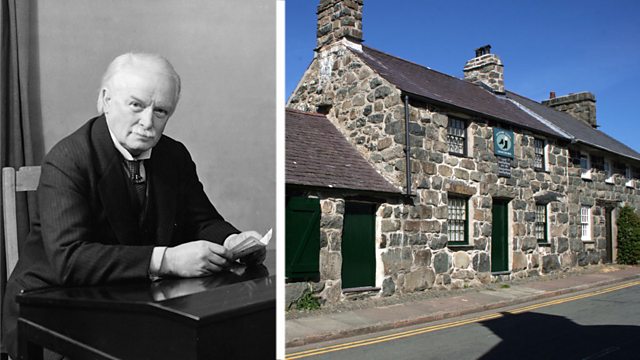
Llanystumdwy, Gwynedd: Highgate and the Making of a Prime Minister
Lloyd Georgeβs childhood home of Highgate may provide some clues to the drive, determination, and mental strength of a man raised in poverty.
βFor many people he was quite simply the man who won the Warβ, says Emrys Williams, of Llanstumdwyβs Lloyd George Musuem. If that is the case, how did a man from this quiet corner of North Wales come to exert such enormous influence over the shape of Britain, and indeed the Continent, once he had come to power as Prime Minister in late 1916? For some people, the key lies in Lloyd Georgeβs Welsh background, and the dedication of his uncle, Richard Lloyd, the village shoemaker, and member of a Baptist sect.
David Lloyd George, who was born in Manchester, was only 18 months old when his father died. His mother was forced to sell his Pembrokeshire cottage and move to her brother Richard Lloydβs cottage at Llanystumdwy. That cottage β Highgate βis a world away from the plush corridors of imperial power to which Lloyd George aspired. And itβs a world of which many of his more privileged political colleagues had little notion. Although far from destitute, the astute politician could justifiably claim βI am one of the children of the peopleβ.
Highgate, restored to its original condition, still houses the original desks at which David and brother Richard stood (and later sat) as they studied hard to pull themselves out of this respectable world of rural poverty. And according to Emrys Williams itβs perhaps here that we have the biggest clue to the course Lloyd George would eventually take. Under the direction of his devout uncle, Richard Lloyd, he would carefully read and prΓ©cis the library of books rescued from his late fatherβs library. As a result, he could master and memorise any brief on first reading, far outstripping his contemporaries. Valuable training for a lawyer β and no less valuable for an ambitious politician.
As one of the victors in the Great War, Lloyd George played a significant and many historians would argue pernicious role in determining the future shape of Europe, contriving to portray himself as a moderating influence between the extremes of the Americans, on the one hand, and the French on the other. But it can be argued that it was his humble Welsh origins that caused him to feel so outraged by the aggression of Germany towards Belgium, and pursue the war with such vigour β being Welsh he knew all about small nations, and their struggles.
Location: Highgate, Llanystumdwy, Criccieth, Gwynedd, LL52 0SH
Presented by Phil Carradice
Interviewee: Emrys Williams
Duration:
This clip is from
Featured in...
![]()
ΒιΆΉΤΌΕΔ Radio Wales—World War One At ΒιΆΉΤΌΕΔ
Places in Wales that tell a story of World War One
![]()
Memory—World War One At ΒιΆΉΤΌΕΔ
Memorials and the commemoration of wartime lives
More clips from World War One At ΒιΆΉΤΌΕΔ
-
![]()
The loss of HMY Iolaire
Duration: 18:52
-
![]()
Scotland, Slamannan and the Argylls
Duration: 07:55
-
![]()
Scotland Museum of Edinburgh mourning dress
Duration: 06:17
-
![]()
Scotland Montrose 'GI Brides'
Duration: 06:41






